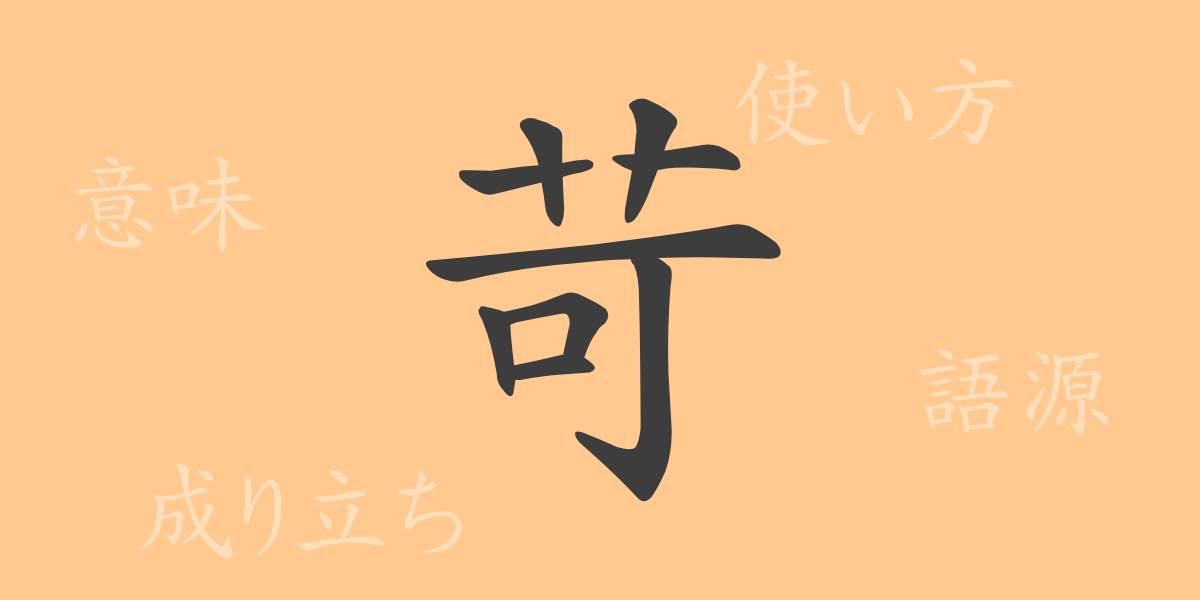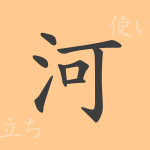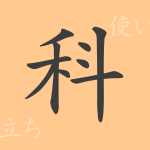The power of a single Kanji character can sometimes evoke the history that is hidden in its shape and sound. The Japanese Kanji “苛” (Ka) is no exception. Although it is not frequently used in everyday life, the Kanji “苛” (Ka) teaches us about the depth of language through its unique form and meaning. This article delves into the full picture of the Kanji “苛” (Ka), from its etymology to its meaning, usage, and even related idioms and phrases.
The Origin (Etymology) of 苛 (Ka)
The Kanji “苛” (Ka) originated in ancient China and is derived from the combination of the “grass” radical with the character “可” (Ka). Originally, it depicted the state of lush vegetation, but over time, as plants overgrew others, the meaning evolved to signify the act of harshly blaming another person. Thus, the transformation of a single Kanji character over its formation process is inscribed within it, and “苛” (Ka) has also undergone a change in meaning throughout its long history.
The Meaning and Usage of 苛 (Ka)
The Kanji “苛” (Ka) carries meanings such as “harsh,” “unreasonable,” and “intense.” It is particularly used to describe situations where someone is excessively strict with others or when nitpicking and fault-finding. This character can be found in business contexts or everyday life to evaluate people’s actions or attitudes. For example, it is used in expressions such as “苛烈な批評” (Severe criticism) or “苛立つ心情” (Irritated state of mind), suitable for conveying strong emotions or attitudes towards others.
Reading, Stroke Count, and Radical of 苛 (Ka)
The Kanji “苛” (Ka) has the following basic information:
- Readings: The Onyomi (Sino-Japanese reading) is “か” (Ka), and the Kunyomi (native Japanese readings) are “いじ.める” (Iji-meru), “さいな.む” (Saina-mu), and “こまかい” (Komaka-i).
- Stroke Count: “苛” (Ka) has a total of 9 strokes.
- Radical: The radical of “苛” (Ka) is the “grass crown” (Kusankanmuri).
Idioms, Phrases, and Proverbs Using 苛 (Ka) and Their Meanings
There are numerous idioms, phrases, and proverbs that include the Kanji “苛” (Ka). Here are a few examples:
- 苛政は虎よりも猛なり – A proverb meaning that harsh governance is more to be feared by the people than a tiger.
- 苛烈 (Karetu) – A word describing an extremely harsh or intense state.
- 苛立つ (Irada-tu) – To feel irritated or frustrated.
These expressions are examples of the rich expressive power of the Japanese language, as seen in literature and everyday conversation.
Conclusion on 苛 (Ka)
The Kanji “苛” (Ka) is a character with a fascinating history of transformation in its form and meaning over time. While it is not commonly used in daily life, it is an indispensable expression for conveying human emotions and attitudes. Through this article, understanding the meanings, usages, and related idioms and phrases of “苛” (Ka) allows us to further appreciate the depth of the Japanese language.

























